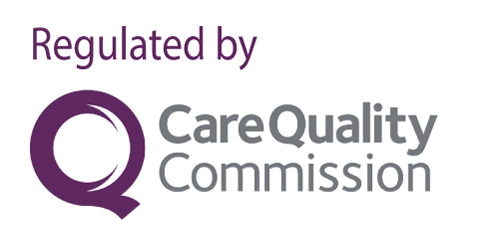Our screenings
Cholesterol
Cholesterol is a fatty substance that is vital for the normal function of the body. However, if you have overly high levels of cholesterol in your blood, it can have a negative effect on your health.
If you have too much bad cholesterol in your blood, fatty deposits can build up in your artery walls. This is particularly likely if you also have low levels of good cholesterol.
Cholesterol is carried around the body by proteins. When cholesterol and proteins combine, they form lipoproteins. There are two main types of lipoproteins.
High density lipoproteins (HDL) - known as the good type of cholesterol, HDL carry cholesterol away from the cells and back to the liver where it can be broken down.
Low-density lipoproteins (LDL) - known as bad cholesterol, LDL carry cholesterol from your liver to the cells that need it.
Although high cholesterol itself does not directly cause any symptoms, it can substantially increase your risk of a number of serious health conditions, including heart disease and other cardiovascular diseases.
Causes of High Cholesterol
There is no one cause of high cholesterol and many different factors can contribute to high blood cholesterol levels, including:
Lifestyle Factors
- An unhealthy diet high in saturated fat
- Lack of exercise or physical activity
- Obesity
- Excessive alcohol consumption
- Smoking
Underlying Conditions
- Hypertension
- Diabetes
- Kidney Disease
- Liver Disease
- Underactive thyroid gland
- Familial hypercholesterolaemia
Other Factors
- Family history of CHD, stroke, or a cholesterol related condition
- Age
- Ethnicity
- Sex
If you are at risk of high cholesterol, there are a number of ways you can reduce your cholesterol levels.
Firstly, lifestyle. Ensure you eat plenty of fruit and vegetables, as well as wholegrains. You should also replace saturated fats with healthy monounsaturated and polyunsaturated fats such as olive, rapeseed, and sunflower oils and spreads. Doing regular exercise and stopping smoking will also help increase your good cholesterol and reduce your bad cholesterol. In some cases, cholesterol-lowering medication will be needed, such as statins.
Screening for Cholesterol
As high cholesterol itself has no symptoms, a blood test is the only way to detect it.
A Complete Lipid Panel Screening Test can be used to screen for high cholesterol. This is taken from your blood sample and measures three different lipids in your blood ; HDL, LDL, and triglycerides, as well as total cholesterol.
Screening is recommended for all adults aged 20 and over should be tested once every five years, particularly if:
- You've been diagnosed with coronary heart disease or leg artery disease
- You've suffered a stroke or mini stroke
- You're aged 40+
- You have a family history of early cardiovascular disease
- A close family member has a cholesterol related condition
- You're overweight or obese
- You have high blood pressure or diabetes
- You suffer from a kidney infection, an underactive thyroid, or an inflamed pancreas.
If you require any further information about screening for Cholesterol, or to arrange a consultation, please get in touch. Our skilled and experienced team are always on hand to provide assistance.


